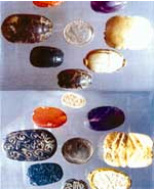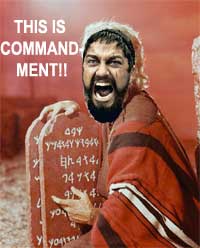News reports are buzing this morning about a cache of coins discovered among some unsorted artifacts in the recesses of the Museum of Egypt. Not only are coins not thought to have been used in ancient Egypt, more surprisingly, the report claims that coins with the name and image of the biblical Joseph have been found among the coins. If this turns out to be a bona fide discovery, this will be the first extra-biblical evidence for any of the biblical patriarchs.
Here is an excerpt from the Jerusalem Post:
Archeologists have discovered ancient Egyptian coins bearing the name and image of the biblical Joseph, Cairo’s Al Ahram newspaper recently reported. Excerpts provided by MEMRI show that the coins were discovered among a multitude of unsorted artifacts stored at the Museum of Egypt.
According to the report, the significance of the find is that archeologists have found scientific evidence countering the claim held by some historians that coins were not used for trade in ancient Egypt, and that this was done through barter instead.
The period in which Joseph was regarded to have lived in Egypt matches the minting of the coins in the cache, researchers said.
“A thorough examination revealed that the coins bore the year in which they were minted and their value, or effigies of the pharaohs [who ruled] at the time of their minting. Some of the coins are from the time when Joseph lived in Egypt, and bear his name and portrait,” said the report.
The discovery of the cache prompted research team head Dr. Sa’id Muhammad Thabet to seek Koranic verses that speak of coins used in ancient Egypt.
“Studies by Dr. Thabet’s team have revealed that what most archeologists took for a kind of charm, and others took for an ornament or adornment, is actually a coin. Several [facts led them to this conclusion]: first, [the fact that] many such coins have been found at various [archeological sites], and also [the fact that] they are round or oval in shape, and have two faces: one with an inscription, called the inscribed face, and one with an image, called the engraved face – just like the coins we use today,” the report added.
Some more details from the original article that appeared in the September 22, 2009, edition of Al-Ahram (Egypt), are provided on the MEMRI website. Here is a translation of the section pertaining to the supposed Joseph coins:
“The researcher identified coins from many different periods, including coins that bore special markings identifying them as being from the era of Joseph. Among these, there was one coin that had an inscription on it, and an image of a cow symbolizing Pharaoh’s dream about the seven fat cows and seven lean cows, and the seven green stalks of grain and seven dry stalks of grain. It was found that the inscriptions of this early period were usually simple, since writing was still in its early stages, and consequently there was difficulty in deciphering the writing on these coins. But the research team [managed to] translate [the writing on the coin] by comparing it to the earliest known hieroglyphic texts…
“Joseph’s name appears twice on this coin, written in hieroglyphs: once the original name, Joseph, and once his Egyptian name, Saba Sabani, which was given to him by Pharaoh when he became treasurer. There is also an image of Joseph, who was part of the Egyptian administration at the time.
“Dr. Sa’id Thabet called on Egypt’s Antiquities Council and on the Minister of Culture to intensify efforts in the fields of Ancient Egyptian history and archeology, and to [promote] the research of these coins that bear the name of Egyptian pharaohs and gods. This, he said, would enable the correction of prevalent misconceptions regarding the history of Ancient Egypt.”
Here is an image from the MEMRI which I assume is of some of the coins:

I would like to affirm the findings and announce that there is now iron clad evidence for the biblical Joseph, but alas, the skeptical side of me says wait and see what comes of this. Wait and see…
 20th Century Fox has announced that they will be remaking The Ten Commandments in the style of “300“! I am not sure of what to make of this. “300” was a visually stunning — if not ultra violent — film, but I can’t imagine what they would do to the story of the Exodus from Egypt to make it work. Here is a snippet from the announcement in Variety:
20th Century Fox has announced that they will be remaking The Ten Commandments in the style of “300“! I am not sure of what to make of this. “300” was a visually stunning — if not ultra violent — film, but I can’t imagine what they would do to the story of the Exodus from Egypt to make it work. Here is a snippet from the announcement in Variety:
 The DVD of the first — and last — season of NBC’s biblical drama, Kings, was released yesterday (Michael Green, 2009;
The DVD of the first — and last — season of NBC’s biblical drama, Kings, was released yesterday (Michael Green, 2009; 